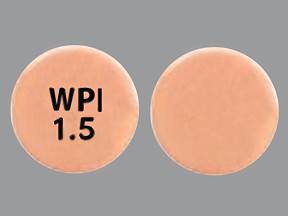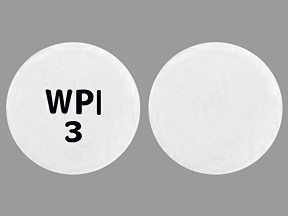PALIPERIDONE EXTENDED-RELEASE - ORAL
PHONETIC PRONUNCIATION: (PAL-ee-PER-i-done)
COMMON BRAND NAME(S): Invega
GENERIC NAME(S): paliperidone
Uses
USES: This medication is used to treat certain mental/mood disorders (such as schizophrenia, schizoaffective disorder). This medication can decrease hallucinations and help you to think more clearly and positively about yourself, feel less agitated, and take a more active part in everyday life. Paliperidone belongs to a class of drugs called atypical antipsychotics. It works by helping to restore the balance of certain natural substances in the brain.
How to use PALIPERIDONE EXTENDED-RELEASE - ORAL
HOW TO USE: Take this medication by mouth with or without food as directed by your doctor, usually once daily. Swallow the tablets whole with liquid. Do not crush or chew the tablets. Doing so can release all of the drug at once, increasing the risk of side effects. The dosage is based on your age, medical condition, and response to treatment. Take this medication regularly to get the most benefit from it. To help you remember, take it at the same time each day. It is important to continue taking this medication as prescribed even if you feel well. Do not stop taking this medication without consulting your doctor. Tell your doctor if your condition persists or worsens.
Side Effects
Precautions
Interactions
Overdose
Images

- color
- reddish-brown
- shape
- round
- imprint
- WPI 6

- color
- reddish-brown
- shape
- round
- imprint
- WPI 6
Reviews
Faq for PALIPERIDONE EXTENDED-RELEASE - ORAL
Paliperidone extended-release is an oral medication used to treat schizophrenia and schizoaffective disorder. It helps in reducing hallucinations and other psychotic symptoms.
You should take paliperidone extended-release exactly as prescribed by your doctor. It is usually taken once daily with or without food. Do not crush, chew, or break the tablets. Swallow them whole.
Common side effects may include drowsiness, dizziness, headache, nausea, weight gain, and restlessness. If these side effects persist or worsen, inform your doctor.
It is generally advised to avoid alcohol while taking paliperidone extended-release as it can increase the risk of side effects such as drowsiness and dizziness.
No, paliperidone extended-release is not addictive. It is an antipsychotic medication that works by restoring the balance of certain chemicals in the brain.
It may take several weeks for paliperidone extended-release to start working effectively. It is important to continue taking the medication as prescribed and not to stop abruptly without consulting your doctor.
Paliperidone extended-release may cause drowsiness and affect your ability to concentrate or react quickly. It is advisable to avoid driving or operating machinery until you know how the medication affects you.
If you miss a dose, take it as soon as you remember. However, if it is close to the time of your next dose, skip the missed dose and resume your regular dosing schedule. Do not double the dose to make up for a missed one.
Warning
WARNING: There may be a slightly increased risk of serious, possibly fatal side effects (such as stroke, heart failure, fast/irregular heartbeat, pneumonia) when this medication is used by older adults with dementia. This medication is not approved for the treatment of dementia-related behavior problems. Discuss the risks and benefits of this medication, as well as other effective and possibly safer treatments for dementia-related behavior problems, with the doctor. If you are using paliperidone in combination with other medication to treat depression, also carefully read the drug information for the other medication.
Disclaimer
IMPORTANT: HOW TO USE THIS INFORMATION: This is a summary and does NOT have all possible information about this product. This information does not assure that this product is safe, effective, or appropriate for you. This information is not individual medical advice and does not substitute for the advice of your health care professional. Always ask your health care professional for complete information about this product and your specific health needs.




No Reviews Yet